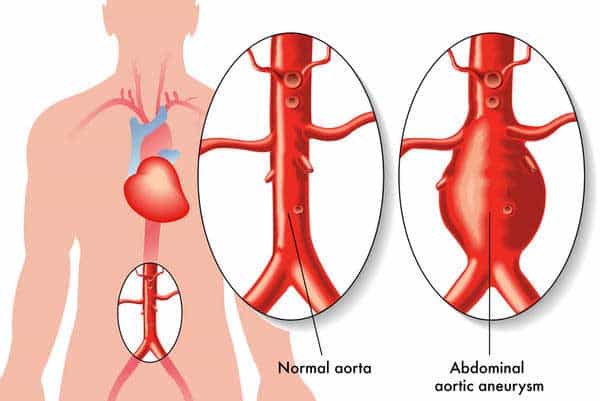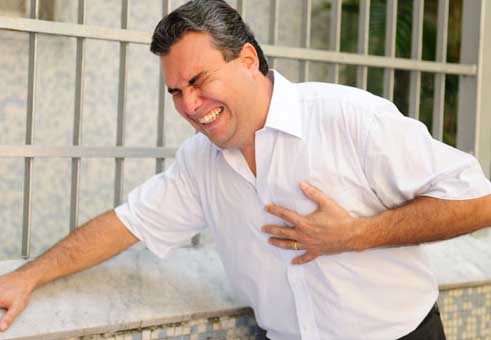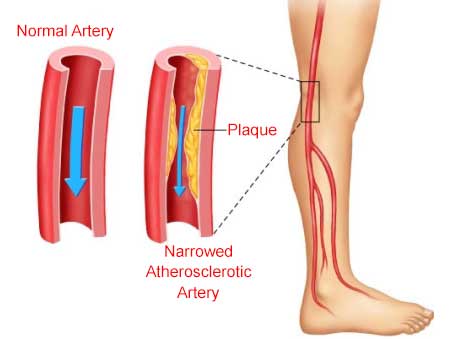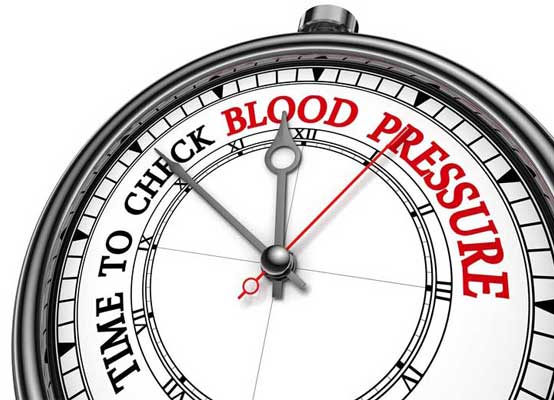Yes, you might have heard it right, the uncontrolled high blood pressure (HBP) or also called as Hypertension, can be that much dangerous that it can injure or kill you; and the worst part is that HBP comes with no symptoms and yes, this is the reason behind another name given to hypertension – the silent killer. In this article we will read about high blood pressure risks, complications and side effects.
Yes, Hypertension is the silent killer because it will keep damaging your arteries, heart, eyes, kidneys and other organs; and you may not be aware of that its happening inside. This is a wide range of hypertension side effects which I will list in this article ahead.
There could be many risk factors responsible for raising the BP including smoking, age, heredity (including race), gender (male), being overweight or obese, diabetes, physical inactivity and high cholesterol. So we will see the most possible risk factors of high blood pressure in details as we go through.
There could be many health risks and complications associated with HBP including damage to the heart and coronary arteries, heart attack, heart disease, congestive heart failure, aortic dissection and atherosclerosis (fatty buildups in the arteries that cause them to harden), stroke, kidney damage, peripheral artery disease (PAD), vision loss, erectile dysfunction, memory loss, fluid in the lungs and angina. We will read all the possible complications of high BP in more details as we go further.
A. Symptoms of High Blood Pressure
Remember why I called the hypertension a silent killer? Because it keeps damaging you inside and you will not know that even. There are no explicit symptoms of hypertension and the only way you know if you have hypertension is to get your BP tested.
It remains symptom less disease unless it reaches to it’s extreme which is known as Hypertensive Crisis when the BP reaches above 180/110, which is a medical emergency and need immediate medical treatment.
B. Risk Factors of High Blood Pressure
As we saw above in brief, there could be many risk factors associated with hypertension which may be responsible to increase your blood pressure. The risk factors for high blood pressure (hypertension) may include:
B.1 Age and Gender
Higher the age, higher the chances of hypertension would be. It also varies in men and women while men are more likely to develop high BP in middle age. In men, blood pressure starts increasing at the age of 45. While in women HBP is more common to develop after the age of 65.
B.2 Race Effects Blood Pressure
People from black race are more prone to get a higher blood pressure and often developing hypertension at an earlier age than it does in whites. Hence the people from black race are even at more risk to develop serious complications of increased blood pressure such as heart attack, stroke and kidney failure.
B.3 Hereditary (Family History)
As you grow older, you are more likely to have the high blood pressure if you have high blood pressure in your parents.
B.4 Being Overweight or Obese Causes High Blood Pressure
If you are overweight or obese then you are at high risk of having HBP in growing ages. Because more the body weight, more the oxygenated blood and nutrients your heart will have to supply towards your tissues. And this results in increasing the volume of blood being circulated through your blood vessels and thus giving more pressure on walls of your arteries.

B.5 Living a Sedentary Life Style (Not Being Physically Active)
People who are living an inactive and sedentary life style tend to have higher heart rates which causes the heart to work harder and stronger with each contraction. This causes the stronger forces on your arteries hence increasing your blood pressure. People living such sedentary life are also at high risk of other chronic diseases such as Insulin Resistance, Prediabetes, Diabetes and Arthritis as complication of it.
B.6 Higher Salt (sodium) Intake Leads High Blood Pressure
If you take too much of salt (sodium) in your diet, then you are more likely to get high blood pressure as the salt can cause your body to retain fluid.
B.7 Lesser Intake of Potassium
People who are not taking the required quantity of potassium in their diet can also be at risk of developing high blood pressure (hypertension). Because Potassium helps balancing the amount of sodium in your body cells and if there is no enough potassium is taken in your diet, more sodium will get accumulated in your blood.
B.8 Drinking Too Much of Alcohol
If you are a heavy drinker, then too you are at high risk of developing hypertension (high blood pressure).
B.9 Stress Raises Blood Pressure
If you have high stress, then you are at risk of HBP.

B.10 Smoking and Using Other Tobacco Products Raises Blood Pressure
People who smoke or use any other tobacco products are at high risk of having high blood pressure. Because the chemicals in tobacco products not only raise your BP immediately, but damages the inner lining of your artery walls making your arteries narrow. With this narrowing of arteries, blood pressure will keep increasing.
B.11 Certain Chronic Diseases and Conditions
There are some certain chronic diseases and conditions including Kidney Diseases, Diabetes and Sleep Apnea which are responsible for increasing your risk of HBP (hypertension).
C. High Blood Pressure in Kids
Kids should also have blood pressure tested after the age of 3 years. Although the increased BP is more common in adults but sometimes it can occur in children too.
Most possible causes in children may include kidneys or heart diseases, poor and unhealthy diet, being overweight and obese, poor lifestyle habits and lack of exercise etc.
Weight Loss Diet – 12 Foods to Lose Weight Naturally
D. Risks and Complications of High Blood Pressure (Hypertension)
Though there may not have explicit symptoms but complications of uncontrolled BP can be life threatening. This is why we call it the “silent-killer”. It can silently damage your body cells and organs for years before any of diseases or symptoms develop which can lead to disability, stroke, kidney failure, heart failure or fatal heart attack.
Further, the high BP in itself is a risk factor for not only heart diseases but many more severe and Chronic Diseases. The complications of hypertension may include:
D.1 Damages to Your Heart and Arteries
A normal and healthy artery should be strong elastic and flexible in nature with a smooth inner lining so that the blood flows smoothly. An uncontrolled high BP can damage your arteries and may lead to below artery complications:
D.1.1 Narrowing the Arteries
An uncontrolled high blood pressure can cause microscopic tears wall of your arteries which eventually turns into scar tissue. These scar tissues narrow and harden the arteries with accumulation of fats, cholesterol, platelets and plaque. And these changes can block blood flow to your heart, brain, kidneys, arms and legs which can lead to blocked arteries in your legs or arms (peripheral artery disease), chest pain (angina), kidney failure, heart attack, heart failure, stroke, eye damage and aneurysms.
D.1.2 Aneurysm
If the blood pressure remains uncontrolled, the constant pressure on weakened artery wall can cause a part of it to enlarge and thus form a bulge like structure. This structure is called aneurysm; and the aneurysm can be fatal as they can rupture and cause life-threatening internal bleeding.

D.1.3 High Blood Pressure Can Cause Heart Failure
High BP causes extra pressure on your heart. Thus this unnecessary pressure on your heart weakens your heart muscles and cause them not to work efficiently. Overtime your heart muscles begin to wear out and the heart got failed.
D.1.4 Enlarged Heart
If you have high blood pressure, then your heart will have to work harder than required in order to pump blood to all your blood cells. This extra work causes the left ventricle of your heart to become thick or stiff (left ventricular hypertrophy). This causes to limit the ventricle’s ability to pump blood to your body properly and increases the risk of heart failure, heart failure and sudden cardiac death.

D.1.5 Decreased Blood Supply
Uncontrolled BP can damaged and hardened your arteries. Hence these damaged and hardened arteries can limit the amount of blood to body cells and organs causing them to not to work properly.
D.1.6 Angina Pain
People with high blood pressure can develop angina as the heart doesn’t get as much blood as needed. In Angina Pain the patient feels uncomfortable pressure on heart or pain in the center of chest. And these symptoms usually become severe while climbing stairs or doing any other physical activity when the heart needs more blood.
D.1.7 Peripheral Artery Disease (PAD)
If the arteries to your legs, arms, stomach and head get narrow, and this conditions is called as peripheral artery disease (PAD). The PAD can cause pain, cramping and tiredness especially in legs and hip muscles. So people who are diagnosed with PAD also are at a higher risk of heart attack or stroke.

High Blood Uric Acid – Risks, Tests, Treatments
Arthritis, Joint Pain, Arthritis Types, Symptoms, Causes, Risks, Diagnosis, Arthritis Treatment
16 Proven Health Benefits of Coffee (Caffeine)
8 Side Effects and Health Risks of Caffeine (Coffee)
D.2 Damages to Your Brain
As of other body parts, your brain also requires the continuous supply of fresh oxygenated blood. So having high blood pressure affects the blood supply in your brain too and can cause serious complications including:
D.2.1 Stroke
Uncontrolled high blood pressure damages and weakens blood vessels supplying blood to your brain cells, causing them to narrow, rupture or leak. If the blood supply in arteries and blood cells to your brain is interrupted due to burst or clog, then your brain is deprived of oxygen and nutrients, causing brain cells to die. And this condition is life threatening and called a stroke. The scar tissues keep accumulating the fats and other deposits, these deposits sometimes can break off to make blood clots. These blood clots keep moving with bloodstream until they get stuck in a small space blocking or interrupting the blood flow. This situation can block the blood supply to organs such as brain and heart and can result in stroke and heart attack.

D.2.2 Transient Ischemic Attack (TIA) –
This condition is characterized by a temporary disruption of blood supply to your brain often caused by atherosclerosis or a blood clot. These two conditions may arise due to high blood pressure. A Transient Ischemic Attack (TIA) is an alarming situation and may be a warning sign for you that you’re at risk of a full-blown stroke.
D.2.3 Dementia
Dementia is a disease of brain causing problems with memory, remember the things, reasoning ability, thinking ability speaking, vision problems and control of movement. High blood pressure can cause a blood vessel in brain to block or bursts. The affected area of brain does not get the blood and oxygen it needs and the brain cells then start to die. Hence this affects the ability of your brain and limit the ability to remember things or think clearly, to control movement and body functions and speak.

D.3 High Blood Pressure Damages Your Kidneys
Your kidneys play very crucial role in your body to filter the toxins, excess fluid and waste products from your blood. High blood pressure damages blood vessels leading damages to your kidneys which can cause serious kidney disease (nephropathy). If the person having kidney disease also has Diabetes then the condition is more worsen and life threatening.
D.3.1 Kidney Scarring (Glomerulosclerosis) and Decreased Kidney Functions –
The Glomeruli are tiny clusters made up of blood vessels within your kidneys. These Glomeruli filter fluid and waste from your blood. High blood pressure affects and damages blood vessels; and your kidney is full of blood vessels (Glomeruli). So your kidneys are automatically at higher risk of damages caused with high BP. Damage to these blood vessels causes the kidney disease Glomerulosclerosis. In Glomerulosclerosis kidneys loose it’s ability to regulate fluid, salts and hormones in the body. It also causes to lose the ability of kidneys to filter toxins from the blood.
D.3.2 Kidney artery aneurysm
As described above, an aneurysm is a bulge in the wall of a blood vessel build due to high blood pressure. These aneurysms in kidney arteries can rupture and cause life-threatening internal bleeding.
D.3.3 High BP Can Lead to Kidney Failure
As the kidneys got damaged, they may not be able to regulate its own blood pressure. And eventually the damage becomes so severe that the kidneys got failed. High blood pressure is one of the most common causes of kidney failure. Because it can damage both the large arteries leading to your kidneys and the tiny blood vessels (glomeruli) within the kidneys. Therefore Damage to either makes it so your kidneys can’t effectively filter waste from your blood. As a result, dangerous levels of fluid and waste can accumulate. You might ultimately require dialysis or kidney transplantation.
D.4 High Blood Pressure Can Damage Your Eyes
Tiny, delicate blood vessels supply blood to your eyes. Like other vessels, they too can be damaged by high blood pressure:
D.4.1 Eye Blood Vessel Damage (Retinopathy)
If not controlled, higher BP can damage the vessels which supplies blood to your eye’s retina. This can lead to blurred vision or complete loss of vision and bleeding in the eyes. So having Diabetes too in addition to high BP makes the condition worsen and more scary.
D.4.2 Impaired Vision
Your eyes are full of small blood vessels and the high blood pressure puts strain on these delicate blood vessels in the eyes. This results in swelling of your optic nerve which results in impaired vision. The only way to treat damaged blood vessels in the eyes is to lower your blood pressure.
D.4.3 Permanent Vision Loss
If high blood pressure remains untreated, the damage caused to brain cells can lead to permanent vision loss.
D.5 High Blood Pressure Can Lead to Sexual dysfunction
Well, HBP can damages your sexual life too which is common in both the men and women. The hypertension damages the inner linings of your blood vessels and thus causes your arteries to harden and narrow (atherosclerosis). This narrowing and hardening of arteries limits the blood flow to your sexual organs.

D.5.1 Erectile Dysfunction
In men, the decrease blood flow to your penis makes it difficult to achieve and maintain erections often referred to as erectile dysfunction. So the people who are not controlling their high blood pressure are more likely to have sexual dysfunction.
D.5.2 Decrease in Sexual Desire
While in women the hypertension can reduce blood flow to your vagina. This may lead to vaginal dryness, decrease in sexual desire or arousal and difficulty in achieving orgasm.
D.6 High Blood Pressure Can Damage Your Bones
It can cause extra calcium secretion in your urine leading to the loss of bone density and cause osteoporosis arthritis. People, mostly the older women with osteoporosis arthritis can be at risk of broken bones too.
D.6.1 Hypertensive crisis
If the blood pressure goes too high i.e. 180/110 or above, this is a fatal condition and need a medical emergency treatment. Then you need to call 911 or any other medical emergency. Such high pressure can damage organs rapidly. At this stage other symptoms may occur including nose bleeding, severe headache, shortness of breath or severe anxiety.
Time to Check Your Blood Pressure

I am sure you might want to check your BP now; and you really should. It however is typically a chronic condition which increases with time and gradually damage over the years. Though in some cases the blood pressure can rise so rapidly and severely that it becomes a medical emergency. Then it needs immediate medical treatment. Therefore It is very important to keep your BP in control as uncontrolled high BP can lead to many serious health complications leading to death.
You can keep your BP controlled by changing your life style to a healthy life style. Also make sure you follow the medications prescribed by your doctor, if any.
Most importantly, there are no specific symptoms of slight high blood pressure, but it starts damaging you inside even at initial stage. Hence it is very crucial to always keep an eye on your BP. Keep a BP monitor at home always. There are lot of BP monitors available in offline and online market you can choose a good one out of them. If you ask me, below here could be the good options to go with, based on my experience.




If you looking some cheaper alternatives, you could go with any one of these below





I never knew that High blood pressure could be that much dangerous. Thanks a lot Dr. Ahuja for explaining in much details. I really found it helpful.